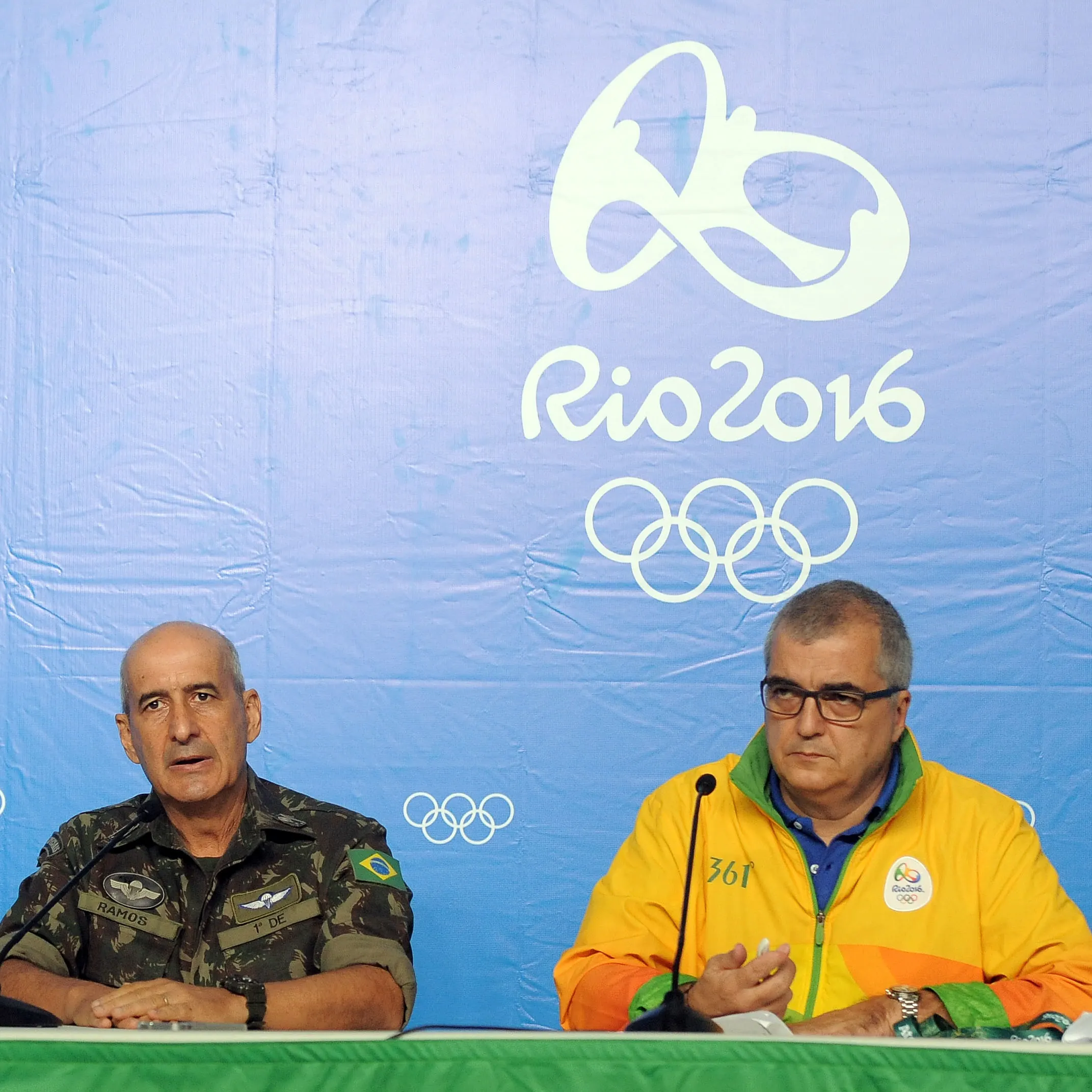Rio de Janeiro—Aug. 10
A bullet was found this morning in the stable area of the National Equestrian Center where the equestrian portion of the Olympic Games is being held. No horses or humans were injured.
This bullet is in addition to the bullet that entered the equestrian media center at the same venue on Aug. 6.
The second bullet was discovered by a soldier near the stables, though General Luiz Eduardo Ramos, chief commander of the first division of the Brazilian Army and head of the investigation, declined to say exactly how close it was to the actual stable.
This morning the military police conducted an operation in the favela of Minha Deus (which translates to “My God”) about 2 kilometers from the National Equestrian Center, where the first bullet was believed to have originated. During that time the military police arrested one suspect with a rifle that matched the 5.56mm caliber bullet originally found in the press tent. The suspect is in police custody. Minha Deus is not a community known to be especially violent.
Shots were fired during the operation, and according to Director of Communications for the Rio Olympic Games, Mario Andrada, that’s where the authorities believe the second bullet came from. Andrada said no one was injured during the operation.
ADVERTISEMENT
Authorities are still running forensics on the second bullet to determine exactly what weapon shot it.
“The [Fédération Equestre Interationale] called on the general to give explanations, which he did,” said Andrade, who passed along a vague announcement of an “incident” in the stables midday today. “Then he was called by the FEI to give explanations to the [chefs d’equipe] which he did. Then he was called to give explanations to [the media], but then he had to go out to the field first, and then he came back for this.”
Ramos promised to reinforce security once again at the National Equestrian Center following the discovery of the bullet. He reiterated he has been planning security of the National Equestrian Center for a year, coordinating with various civilian and military authorities.
Andrade and Ramos also addressed concerns that gunfire has been audible at both at the National Equestrian Center and the Deodoro Village complex, where many of the equestrian officials, staff and media are housed. Several riders noted that the gunfire startled their horses.
Ramos said that because Deodoro is a military complex where troops are constantly training. He said that while the Brazilian army has a responsibility to maintain their training, in response to the second bullet, they will be stopping shooting exercises for the remainder of the Games.
Ramos initially promised everyone at the National Equestrian Center was completely secure, then clarified.
ADVERTISEMENT
“I will do my best to provide security for you,” said Ramos, who commands over 5,500 troops. “I have worked in many countries in Europe and the United States and lots of places. No one can say that you’re ever 100 percent safe—no matter if you’re in Brazil or other countries. I will try with all my heart to do my best, but who can guarantee 100 percent security?”
He also addressed concerns about a media bus that was hit by an object that shattered its windows yesterday, Aug. 9.
He reported that the windows were shattered by a rock, not a gun, as had been reported by some news outlets.
The National Equestrian Venue, where the horse sports are taking place, are located in the Deodoro area of the North Zone of Rio, which is a military zone filled with barracks and training areas. Andrade reported that the National Equestrian Venue has the stricted security of any of the venues of the Olympic Games.
“Favelas” are slums located in urban areas in Brazil. In Rio de Janeiro close to 1,500,000 people—around 23 percent of the population—live in favelas. Favelas are often a hotbed for drug trafficking and other illegal activity, but are also vibrant communities full of low- and middle-class residents.
Mollie Bailey and Lindsay Berreth are on the ground in Rio de Janeiro for the Chronicle and will be reporting with all the news, fantastic photos and behind-the-scenes details all posted on www.coth.com. Your go-to page for all things Olympic is http://www.chronofhorse.com/2016-Olympics
We’ll have live blogs of competition sessions, Twitter updates, blogs, photo galleries, stories about each day’s competition and so much more. Don’t miss a thing—we’ll have everything you need to know. Also make sure to follow along on the Chronicle’s social media outlets: Facebook, Twitter, Instagram and Snapchat (@chronofhorse).















